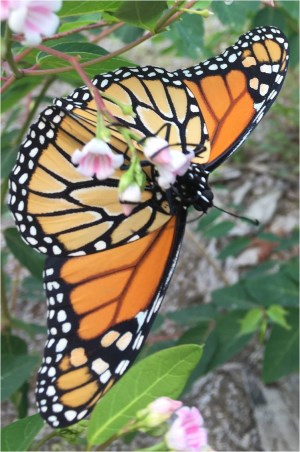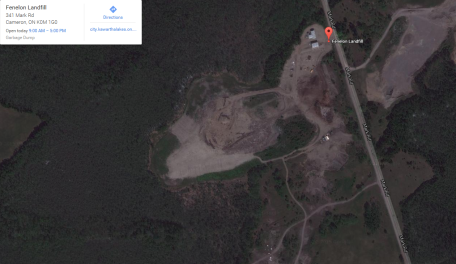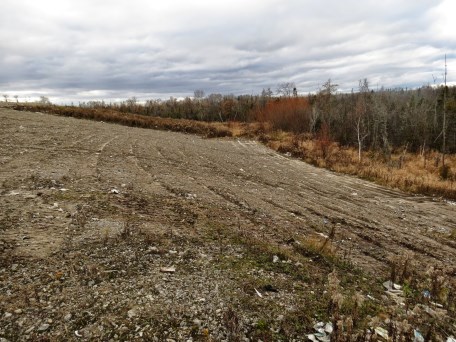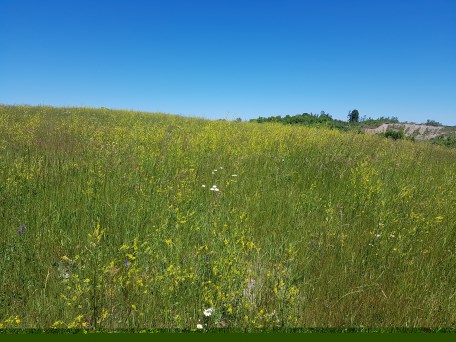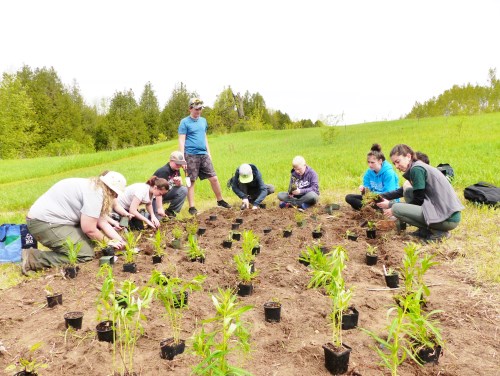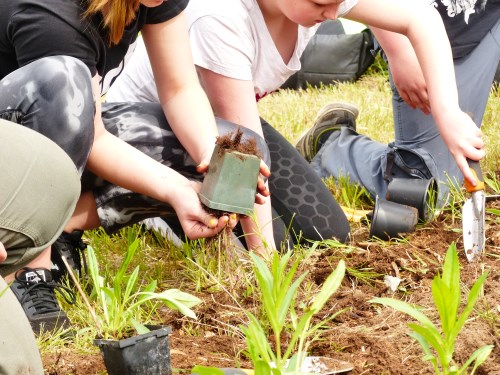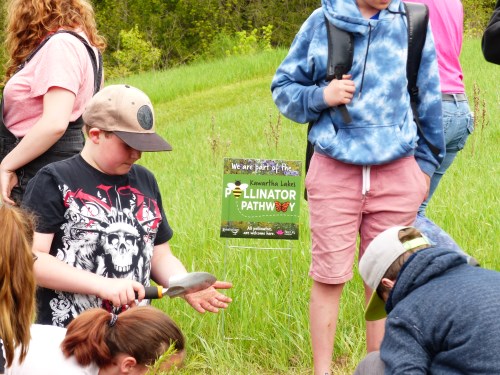You can help pollinators by creating foraging and nesting opportunities in your garden. Here are some tips to attract bees and butterflies to your garden.
Plant native
Choose native shrubs, trees and perennial flowers rich in pollen and nectar. Locally grown and pesticide free are best. For native plants, visit Kawartha Conservation.
Mass plantings
Planting multiples of the same plant together in large groupings makes it easier for pollinators to find and collect pollen.
Choose single blooms
Double or triple bloom flowering varieties with lots of petals can block access to pollen and nectar.
Continuous bloom
Pollinators need a continuous source of pollen and nectar; so choose a variety of plants that will bloom from spring to fall.
Plant host plants
Butterflies lay their eggs on specific plants. Monarch butterflies, for example, will only lay their eggs on milkweed, the sole food source for their larva.
Provide water
A bird bath or shallow dish of water with half-submerged rocks will help bees and butterflies quench their thirst.
Provide sun
Butterflies like to bask in the sun, so place a few flat rocks in sunny, sheltered locations.
Keep it natural
Converting a lawn or garden to concrete, gravel, mulch or artificial turf reduces valuable food and nesting sites.
Bare ground
Many native bees build nests in soil, so leave some bare patches and limit your use of mulch.
Leave dead stems
Some bees hibernate and lay eggs in hollow stems. If you do cut, leave the bottom 8 inches or bundle the stems and place them in your garden.
Leave the leaves
Leave the leaves where they fall or rake them into your garden to provide overwintering habitat for butterflies.
Prune and deadhead
Remove dead flower heads to encourage new growth and extend the flowering season.
Reduce mowing
To avoid disturbing ground nesting bees, mow your lawn less often and set the blade at the highest level possible.
Avoid pesticides
Avoid plants/seeds treated with systemic insecticides, such as neonicotinoids. And don't spray pesticides. Pesticide Bylaw bans the cosmetic use of pesticides.
Turn off lights
Help our nocturnal pollinators such as moths by remembering to turn out your outdoor lights at night.





























